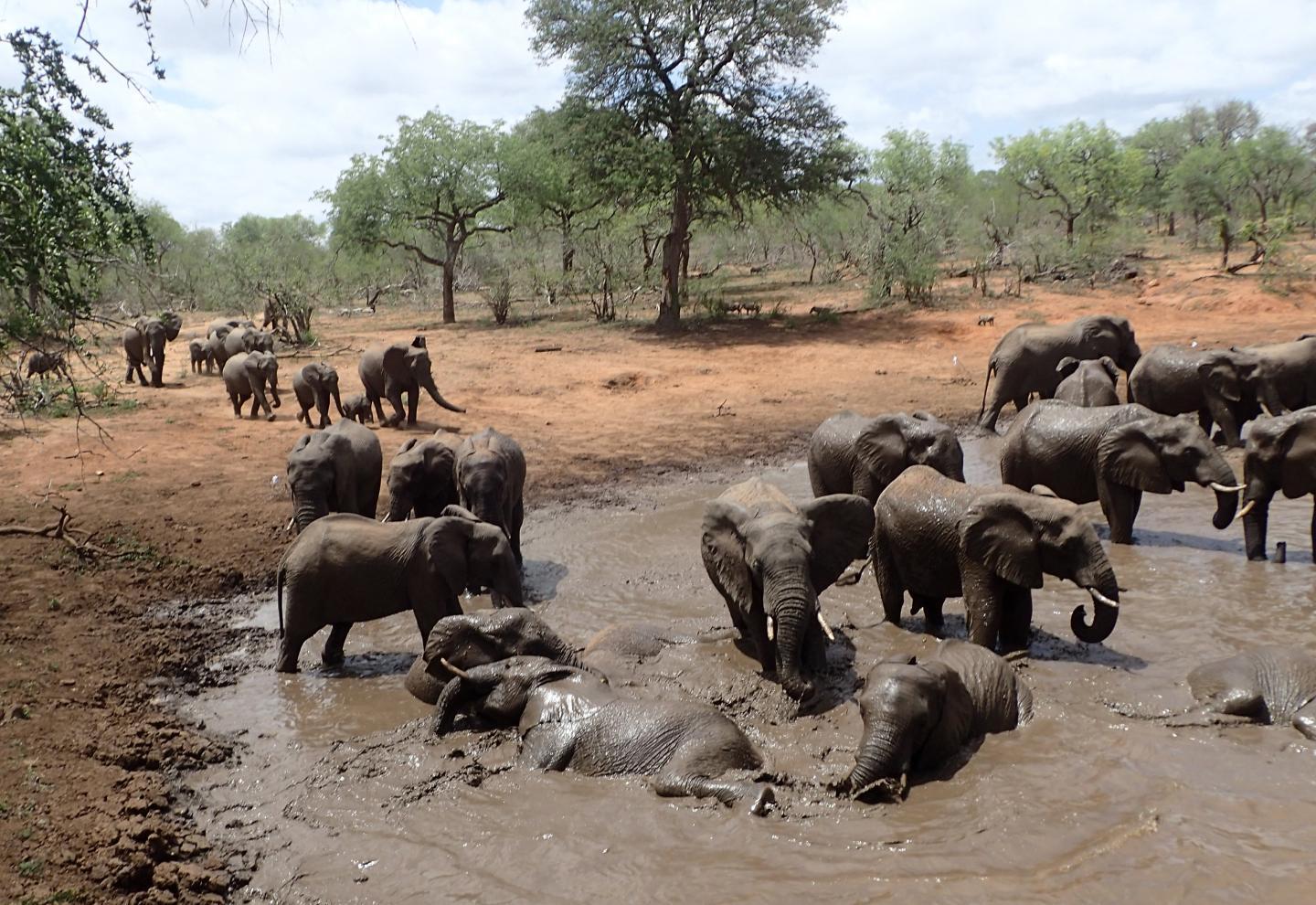Africa's Largest Mammal Is Terrified of This Tiny Insect

Most people are familiar with the silly image of an enormous elephant cowering at the sight of a tiny mouse. While that image is only a fixture in cartoons, scientists found that a different tiny creature gives elephants the heebie-jeebies: honeybees.
Researchers in South Africa's Greater Kruger National Park discovered that African bush elephants (Loxodonta africana) steer clear of angry honeybees. They hope to use that trait as a strategy to keep elephants away from human-populated areas.
Honeybees release chemical substances called pheromones when they sense a threat. For the bees, these natural alarm signals tell their buddies to come help and act defensively, i.e., sting, according to the Nieh Lab at the University of California San Diego. Humans seem to lack pheromone receptors, so it's likely that they can't detect such chemical cues, but elephants can. The scientists realized that if elephants could sense the alarm pheromones from honeybees, they'd likely keep their distance from that area. [Are Elephants Really Afraid of Mice?]
To test this theory, the researchers placed a sock filled with a slow-release matrix containing a blend of honeybee alarm pheromones near a watering hole frequented by the park's elephants. They watched 25 of 29 elephants approach the sock and briefly inspect it from a distance before backing away in fear. However, the elephants acted carefree around a similar-looking control sock that was clear of pheromones — some of the elephants actually picked it up and others even tried to eat it.
The scientists think elephants are afraid of bees because they dislike being stung in the soft tissue that's present inside their trunks and around their eyes. And who can blame them? As the elephants evolved, scientists suspect the large creatures learned to identify and avoid the alarm pheromones of honeybees as a way to avoid painful stings.
Human populations are steadily growing in regions of Africa and Asia that overlap with elephant habitat, making it important to develop safe elephant-management strategies that will help prevent conflicts. Although they found that honeybee pheromones can repel elephants, the scientists are unsure how difficult it would be to employ the technique on a larger scale, such as for protecting cropland.
The researchers published their study on July 23 in the journal Current Biology.
Sign up for the Live Science daily newsletter now
Get the world’s most fascinating discoveries delivered straight to your inbox.
Original article on Live Science.

Kimberly has a bachelor's degree in marine biology from Texas A&M University, a master's degree in biology from Southeastern Louisiana University and a graduate certificate in science communication from the University of California, Santa Cruz. She is a former reference editor for Live Science and Space.com. Her work has appeared in Inside Science, News from Science, the San Jose Mercury and others. Her favorite stories include those about animals and obscurities. A Texas native, Kim now lives in a California redwood forest.










